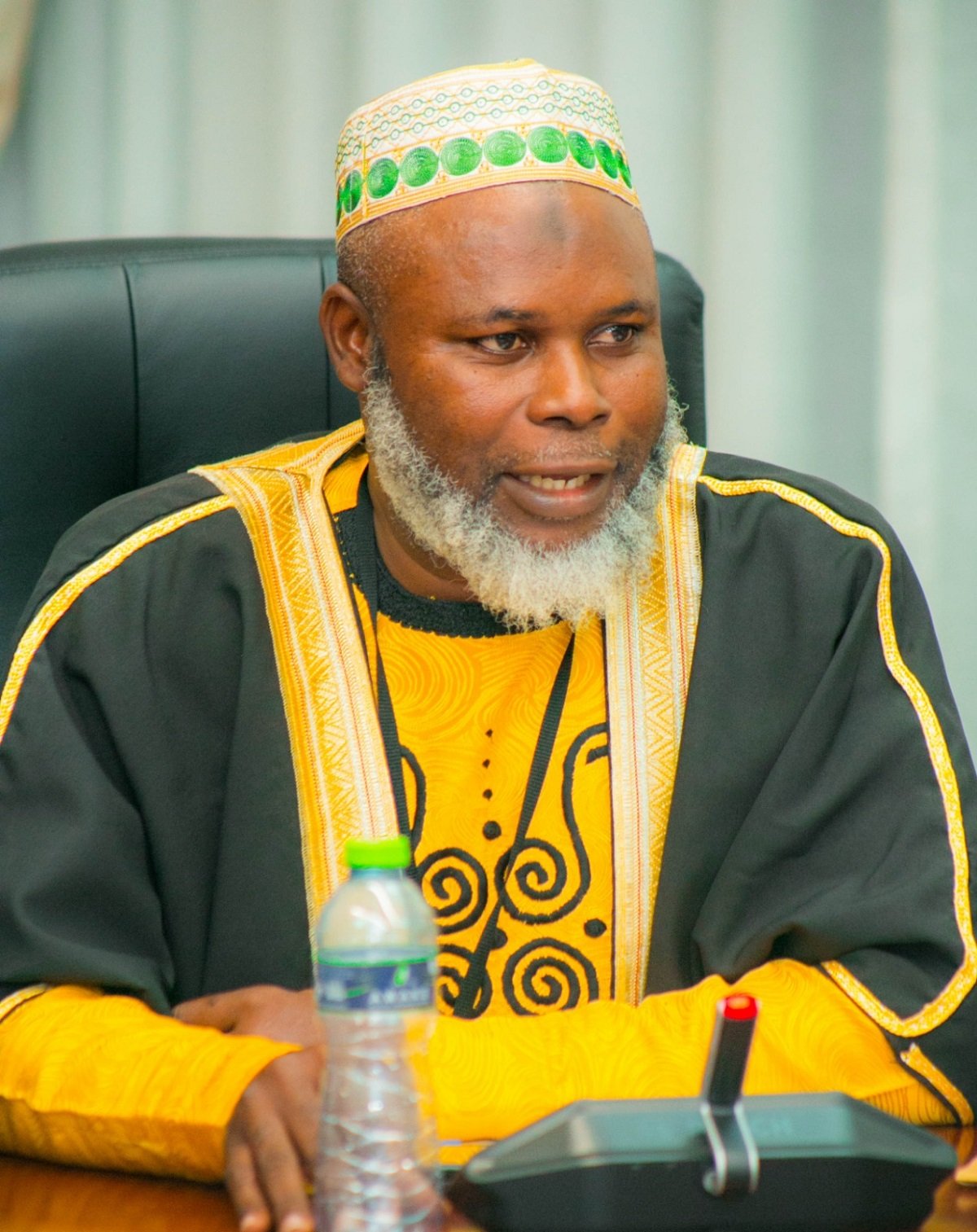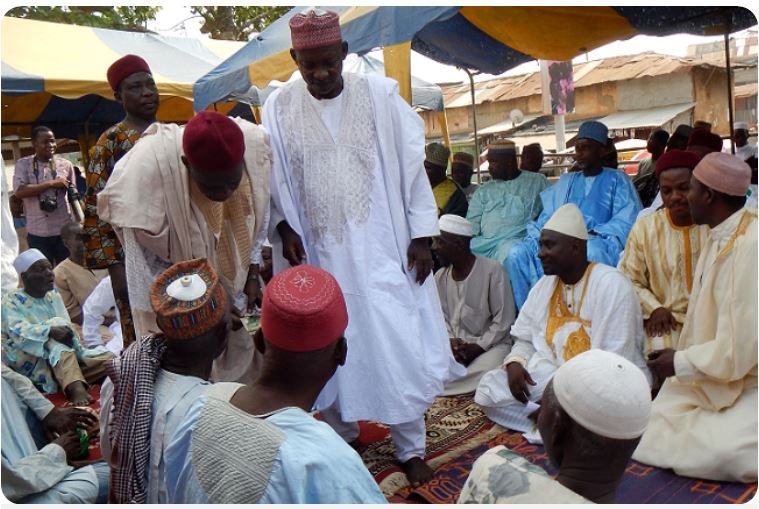Fruitful Living
Institution of Marriage in Islam (Pt.2)

Imam Abdulai – Author
Rights and Responsibilities of Husband and Wife in Islamic Marriage
Islam defines the roles and responsibilities of spouses in a balanced way, emphasising mutual respect and kindness.
The husband is responsible for providing financial support (nafaqah) to his wife and family, as mentioned in the Qur’an: “Men are the protectors and maintainers of women, because Allah has given the one more (strength) than the other, and because they support them from their means” (Qur’an 4:34).

On the other hand, the wife’s primary responsibility is managing the household and caring for the children. However, these roles are not fixed, and Islam encourages cooperation and shared responsibilities, depending on the circumstances of the family.
The Prophet Muhammad (PBUH) advised husbands to treat their wives kindly: “The best among you are those who are best to their wives” (Tirmidhi, 1162).
This underscores the principle of mutual kindness, respect, and care that must be the foundation of every Islamic marriage.
Criteria for Selecting a Spouse in Islam
Islam provides clear guidance on the criteria for selecting a spouse, ensuring that the foundation of the marriage is based on piety, character, and compatibility.
The Prophet Muhammad (PBUH) said: “A woman is married for four reasons: her wealth, her family status, her beauty, and her religion. So marry the one who is religious, may you be blessed!” (Bukhari, 5090; Muslim, 1466).
This hadith further indicates that while wealth, beauty, and family status may be factors in choosing a spouse, the most important consideration should be religious commitment. A person who is deeply connected to their faith is more likely to maintain a strong moral character and fulfill their responsibilities in marriage.
For men, the Qur’an provides guidance on selecting a righteous wife:
“So marry those that please you of [other] women, two or three or four. But if you fear that you will not be just, then [marry only] one or those your right hand possesses. That is more suitable that you may not incline [to injustice]” (Qur’an 4:3).
This verse emphasises the importance of fairness and justice in marriage. While polygamy is permitted in Islam, it is conditioned upon the man’s ability to treat all wives equally, financially, and emotionally.
For women, it is important to seek a husband who exhibits good character and a strong connection to his faith. The Prophet Muhammad (PBUH) advised: “If a man comes to you and you are satisfied with his religion and character, marry him. If you do not do so, there will be corruption and great evil on earth” (Tirmidhi, 1084).
The emphasis on piety and good character ensure that the couple will be able to support each other in their religious obligations and build a harmonious household.
Sexual Relationship in Islam and Proper Conduct
In Islam, the sexual relationship between a husband and wife is viewed as an important aspect of marriage that fosters love, intimacy, and emotional closeness.
Sexual relations within marriage are not only lawful but encouraged, as long as they are conducted within the ethical boundaries set by Islam. Allah (SWT) says: “Your wives are a place of sowing of seed for you, so come to your place of cultivation, however, you wish and put forth [righteousness] for yourselves. And fear Allah and know that you will meet Him. And give good tidings to the believers” (Qur’an 2:223).
This verse highlights the lawful and permissible nature of sexual intimacy between married couples. It also emphasises that sexual relationships should be a means of fostering mutual satisfaction, love, and moral growth.
The Prophet Muhammad (PBUH) instructed Muslims to maintain modesty and respect in their intimate relations, stressing the importance of mutual pleasure between spouses.
Regarding sexual intimacy, it is also prohibited for a wife to demand money or gifts before allowing her husband to engage in sexual relations. Islam views this as a form of exploitation and sin. A marital relationship must be based on mutual love, respect, and affection rather than material gain.
Prohibition of Sexual Intercourse during Menstruation
Islam has clear guidelines regarding sexual relations during certain times, particularly when a woman is menstruating. The Qur’an prohibits sexual intercourse during menstruation, stating:
By Imam Alhaji Saeed Abdulai, 1BN – Michel Camp
Fruitful Living
‘Allahu As-Samad’

Introduction to the Concept of As-Samad
Servants of Allah, one of Allah’s most profound names, As-Samad, is mentioned in Surah Al-Ikhlas, where Allah describes His oneness and perfection:
“Say, ‘He is Allah, [Who is] One. Allah, the Eternal Refuge (As-Samad). He neither begets nor is born, nor is there to Him any equivalent.’” (Qur’an 112:1-4).
The name As-Samad encompasses the idea of Allah’s absolute independence and self-sufficiency. Ibn Abbas (RA) explained that As-Samad refers to the one to whom all creation turns in times of need, while He Himself is free from any need (Tafsir Ibn Kathir).
Allah requires no sustenance, no assistance, and no support in carrying out His plans. Yet all creation—human beings, animals, plants, and even angels—rely entirely on Him for their existence, sustenance, and success.
Allah’s Independence Demonstrated in Creation
Allah’s independence is evident in the perfection of His creation. He brought the universe into existence with unparalleled mastery. Allah states:
“Indeed, your Lord is Allah, who created the heavens and the earth in six days and then established Himself above the Throne. He manages every affair…” (Qur’an 10:3).
The heavens, the earth, the mountains, the seas, and every living creature were created without the assistance of anyone. Even the most intricate systems—such as the orbiting of planets, the growth of plants, and the functioning of the human body—operate under Allah’s command.
This is further emphasised in another verse:
“To Allah belongs whatever is in the heavens and whatever is in the earth. And Allah is free of need, the Praiseworthy.” (Qur’an 31:26).
Evidence from the Sunnah
The Sunnah of the Prophet Muhammad further emphasises Allah’s independence and self-sufficiency. In a powerful hadith qudsi, Allah says:
“O My servants, all of you are astray except for those whom I have guided, so seek guidance from Me, and I shall guide you. O My servants, all of you are hungry except for those whom I have fed, so seek food from Me, and I shall feed you. O My servants, all of you are naked except for those whom I have clothed, so seek clothing from Me, and I shall clothe you.” (Muslim, Hadith 2577).
This hadith reflects Allah’s perfection in fulfilling the needs of creation while remaining independent and unaffected by those needs. Allah’s perfection in providing is limitless, as reflected in another narration:
“Allah’s Hand is full, and it does not diminish by His continuous giving day and night.” (Bukhari, Hadith 4684).
Human Dependence on Allah
Unlike Allah, humans are intrinsically dependent on Him for every aspect of their existence. Allah says:
“O mankind, you are those in need of Allah, while Allah is the Free of need, the Praiseworthy.” (Qur’an 35:15).
This dependence is not a weakness but a natural state that reminds us to turn to Allah in all matters. The Prophet Muhammad advised his companions to rely on Allah, saying:
“If you ask, ask Allah; if you seek help, seek help from Allah.” (Tirmidhi, Hadith 2516).
Believers are encouraged to place their trust in Allah, as He alone controls every affair:
“And whoever relies upon Allah – then He is sufficient for him. Indeed, Allah will accomplish His purpose.” (Qur’an 65:3).
By Imam Alhaji Saeed Abdulai,
1BN – Michel Camp
Fruitful Living
Cultivating and maintaining Godly relationships (final part)
It is important to understand that Christlike love is not self-centred. We live in a culture that promotes a “what’s in it for me” mindset in relationships. But godly relationships reflect in a different attitude. Instead of asking, “What can I get out of this relationship?” we should ask, “How can I serve, uplift, and encourage this person?”
Whether in marriage, friendships, or even work relationships, cultivating love means sacrificing our own needs for the sake of others. Christlike love is the glue that holds godly relationships together.
Ask yourself. Am I loving those around me in the way Christ loves me? Am I willing to forgive, serve, and sacrifice for others in our relationships?
If we are truly followers of Christ, love must be at the centre of how we relate to everyone.
2. Godly Relationships Are Built on Trust and Integrity
The second point is that Godly relationships are built on Trust and Integrity. Trust is the bedrock of any healthy relationship, and integrity ensures that this trust is not broken. Without trust, relationships become strained, and eventually, they fall apart.
Proverbs 12:22 says, “The Lord detests lying lips, but He delights in people who are trustworthy.” Trust is earned through honesty, faithfulness, and a commitment to doing what is right. In godly relationships, we are called to be people of our word, to be reliable, and to act with integrity at all times.
Integrity in a relationship means that we are consistent in our character—we are the same in private as we are in public. It means we are not deceitful, manipulative, or hypocritical. Instead, we are transparent and honest. This applies to all forms of relationships, whether in marriage, friendships, or even professional relationships.
Building trust requires time and intentionality. Do our actions align with our words? Can people depend on us? If we are to maintain godly relationships, we must commit to being trustworthy and people of integrity.
3. Godly Relationships Require Forgiveness and Grace
No relationship is perfect because people are not perfect. Conflict, misunderstandings, and offenses are inevitable. But godly relationships are maintained through a posture of Forgiveness and Grace.
Ephesians 4:32 instructs us to “Be kind and compassionate to one another, forgiving each other, just as in Christ God forgave you.”
One of the most challenging aspects of maintaining godly relationships is the ability to forgive those who hurt us, intentionally or unintentionally. Holding onto bitterness or grudges only destroys relationships and erodes our peace.
When we forgive, we imitate Christ, who forgave us of our sins even when we were undeserving. Forgiveness is not about denying that we were wronged, but it is a conscious decision to release the offense and allow God to heal our hearts.
Moreover, grace is essential. Grace means giving others room to make mistakes, to grow, and to change. We are all on a journey of becoming more like Christ, and grace allows us to see others as God sees them—worthy of love, compassion, and patience.
To be continued!
Stay blessed!
For further inquiries, please contact us on Tel Nos. 0243588467 or 0268130615
Email: saltnlightministries@ gmail.com
Website: saltandlightministriesgh.org
- By Rev. Dr Joyce Aryee, the author







